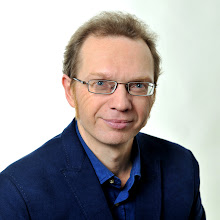Als ich am Donnerstag mit Michael am Kernkraftwerk Biblis vorbeikam (siehe Blog vom Donnerstag, 20.8. Bibliser Ansichten), strahlte dies auf mich eine besondere Faszination aus - menschlich geschaffene Groß- ja Spitzentechnologie. Staunen, aber ganz anders als dasjenige, das schöne Natur auslöst. Diese Technik verweist nicht auf Natur, sondern, obwohl sie elementare natürliche Prozesse technisch nutzt (atomare Kernschmelze), auf Fähigkeiten des Menschen. Sie macht den Menschen groß, so jedenfalls nehme ich das war. Zum Problem, das menschliche Technik, vor allem moderne Technik, nicht mehr auf Gott verweist, sondern auf den Menschen selbst als Macher, als homer faber, habe ich vor einiger Zeit auf Englisch einige Überlegungen geschrieben:
Distance to God in the experience of nature: the problem of technology
The experience of nature is ambivalent. Nature can be lovely but also terrifying. Nature is full of life and death, good and evil. Nature shows reliable rhythms but they can be destroyed by catastrophies. We can experience nature as a protecting house, but also as a chaosdriven danger.
Today the most influential challenge to the nearness of God in the experience of nature is the synthesis of science and technology. With high technology mankind creates an artifical world, especially in the modern cities. Most of the time we see nature only through windows of all kinds. In the modern city „God has gone/left“, we live in cities without God. Technology is fascinating, but has no real life. It’s not God’s spirit we experience in technology, it is man’s. Driving a car, using modern transportation, living in a computer-controlled building I’m sourrounded by men’s creations enjoying the convenience it brings. In the mirror of technology I see the power and creativity of the autonomous inventive spirit of man. Big fair’s (automobiles, computers) are organized like sacral/sacred rituals, sociologists speak of “implicit” religion. The blind spot of this homo faber is suffering and death, although technology has an immense power of healing and prolongation of life. We don´t like to hear the aching of nature, the suffering of creation or our own suffering – caused by nature or by technology. Technology seems to be without measure and limits, and has already developed a self-dynamic, almost impossible to control. More and more, we become slaves of the compelling fascination technology exerts on our modern society. The biblical symbol for this phenomenon is the tower of Babylon, the City of Babylon.
Life in modern societies is experienced as a neverending spiral-like process of selforganized social and technical systems, ruled by necessity (tradition) and chance (progress). We are projecting this autodynamic experience of progress and advance in technology on nature. Then the whole world becomes a neverending, reiterating process, governed by power and fate, destiny and chance, repetition without identity. Maybe there is some heuristic truth in this perception, but God has no part in this game.
Sonntag, 23. August 2009
Abonnieren
Kommentare zum Post (Atom)

Keine Kommentare:
Kommentar veröffentlichen